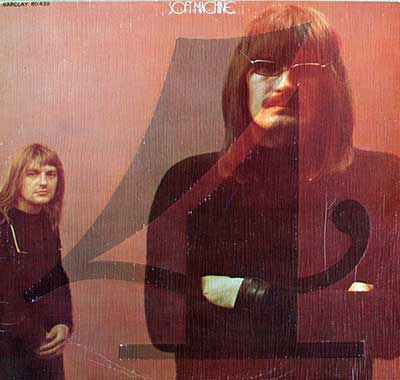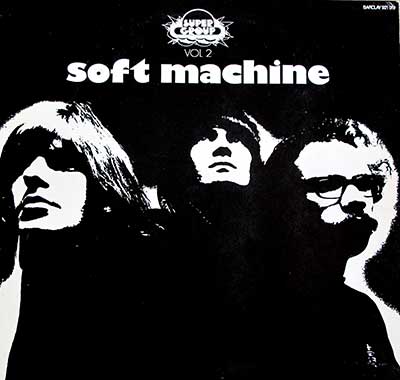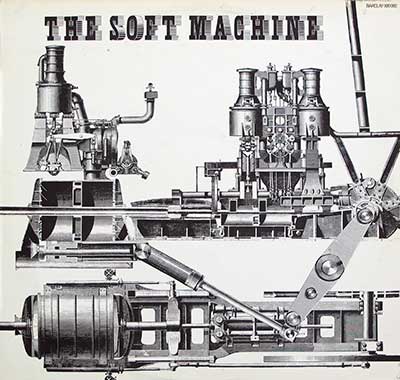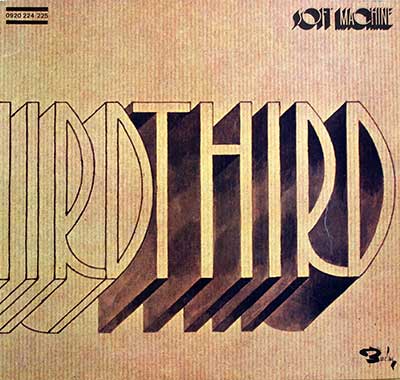In 1969, the year of Woodstock and the moon landing, Soft Machine released their second album, a double-sided sonic freakout that still confounds and delights listeners today. "Rivmic Melodies" and "Esther's Nose Job" are two sides of the same coin, a yin and yang of Canterbury weirdness.
Canterbury Scene: The Epicenter of British Eccentricity
Picture this: England in the late '60s, a swirling vortex of psychedelia, jazz, and a dash of British whimsy. This was the Canterbury scene, a breeding ground for musical mavericks like Caravan, Gong, and of course, Soft Machine. These guys weren't interested in chart-topping hits or radio-friendly hooks; they were on a mission to expand the boundaries of sound.
"Rivmic Melodies": A Madcap Medley
"Rivmic Melodies" is a kaleidoscope of fragmented ideas, a musical jigsaw puzzle that never quite fits together. It's a wild ride through a sonic funhouse, with sudden shifts in tempo, bizarre sound effects, and nonsensical lyrics. Robert Wyatt's vocals veer from childlike innocence to manic hysteria, while Mike Ratledge's keyboards and Hugh Hopper's bass weave intricate patterns that defy easy categorization.
There's "A Concise British Alphabet," a spoken-word piece that's both hilarious and baffling. "Hibou, Anemone and Bear" is a psychedelic jam with a catchy melody that gets twisted and turned inside out. And "Dada Was Here" is a dada-esque romp that sounds like it was recorded in a lunatic asylum.
"Esther's Nose Job": A Sprawling Suite
Flip the record over, and you're plunged into the depths of "Esther's Nose Job," an 18-minute instrumental epic that's both mesmerizing and terrifying. It's a free-form exploration of sound, with extended solos, dissonant harmonies, and moments of pure sonic chaos. Ratledge's organ drones and shrieks, Hopper's bass throbs and pulses, and Wyatt's drums pound like a tribal ritual.
The piece builds to a crescendo of mind-bending intensity, then abruptly collapses into a quiet coda. It's a journey to the edge of sanity and back, a musical rollercoaster that leaves you breathless and bewildered.
Genre? What Genre?
Soft Machine's music defies easy categorization. It's jazz, but not quite. It's rock, but not really. It's avant-garde, experimental, psychedelic, and just plain weird. They were pioneers, forging a new path through the musical wilderness.
Controversies and Creative Tensions
Of course, such a radical approach wasn't without its detractors. Some critics dismissed Soft Machine as self-indulgent and pretentious. Others praised their audacity and originality. The band members themselves were known for their volatile personalities and frequent lineup changes, adding to the sense of creative chaos.
The Production: Capturing the Chaos
The album was recorded at the legendary Olympic Studios in London, the same place where The Beatles and Jimi Hendrix laid down their masterpieces. The band produced the album themselves, giving them complete control over the final product. The result is a raw, unpolished sound that perfectly captures their live energy and improvisational spirit.
The Verdict
Soft Machine's "Super Group Vol. 2" is not an easy album to digest. It's challenging, demanding, and sometimes downright frustrating. But it's also a testament to the power of musical exploration and the boundless creativity of the human spirit. It's a reminder that music can be more than just entertainment; it can be a journey into the unknown, a sonic adventure that challenges our perceptions and expands our horizons.






